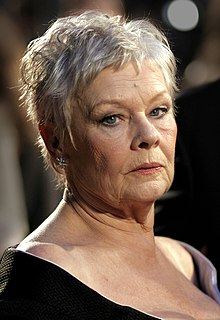A Quote by Glen Hansard
I think it's very interesting, people who can't stand people who whinge and whine. It seems almost like a class issue. Because you think about who is the most positive, who's the most redemptive songwriter that's ever existed in your lifetime?
Related Quotes
I think subjectivity plays into everything. It's unavoidable; you couldn't avoid it if you tried. I think, potentially, a lot more commercial movies, it seems to be that the people making the films are trying to elicit the same reaction. I think a lot of the most interesting work in art and in films are often kind of polarized opinions and affect people in very different ways, which may be less successful commercially, but they elicit a dialogue that's quite interesting.
It's been a long time since Roe v. Wade, and I do think most people are able to have respect for other people's choices. Most people, I think, have accepted that it's not up to them to control other people's choices, except, it seems, when it comes to Washington, D.C., where everyone has an opinion about people's uteruses.
I drink much less than most people think, and I think much more than most people would believe. I am quite sincere about some of the things which people take very lightly, and almost insultingly unconcerned about some of the things which people take most seriously. In short, I am basically antisocial: certainly not to an alarming degree , but just more so than I appear to be.
I think that there is a middle-class desire, and maybe an almost universal desire, among many human beings to live in clean neighborhoods, among people like themselves, around people with whom they feel comfortable. That can be exclusive, it could be exclusionary. It could be racist, classist, genocidal, and so on. Most people like comfort. Now what provides a sense of comfort varies. I do think that people who like living in cities like small-scale human interaction and they like the social dimensions of aesthetic diversity that Jane Jacobs wrote about.
I don't have an opinion about whether or not politics should appear more in fiction or not, generally. I think politics are a part of life, but a part of life that most people don't think about very much, most of the time. Or, people think about it superficially and they talk about it superficially because they don't know very much.
I think we're just scratching the surface. One of the most exciting aspects of 23andMe is that we're enabling you to watch a revolution unfold live during your lifetime, and I think that the decoding of the genome, in my opinion, is the most fascinating discovery of our lifetime, and you get to be part of it.
Something is very, very wrong with American culture. The signs are everywhere. I think the country is in almost terminal descent. The business class is combined with the evangelicals. And I think the evangelicals want to provoke an immense global disaster to precipitate the second coming of Christ. So they are very happy about what we're doing to Iraq - and the menace we present now for Syria and for Iran - because they think that the apocalypse is an important thing to get into so that they can see vindicated their most literal interpretation of the Bible.
The issue of torture, connected to American soldiers, is not somewhere most people want to linger. We may not want to confront this issue so much in the U.S. because of how we want to think about our veterans. There's the sense that we want to think of our veterans as - if they're damaged, damaged by something glamorous, like a firefight.
What's hard to do is describe why you like something. Because ultimately, the reason things move people is very amorphous. You can be cerebral about things you hate, but most of the things you like tend to be very emotive. It's really hard to do a literary reproduction of what makes you happy. That's what I try to do. If nothing else, it seems like there's enough people out there telling the world what isn't cool, or what's terrible, or what's depressing. I think there's an element of cynicism in my writing, but I'm an optimistic cynic.
I think the one I'm most proud of as a songwriter is 'Breaking Your Heart' because it was just a different style for me. It was very - I feel like it was very old-timey Patsy Cline. It's got a very '50s feel to it, and I pushed myself to write those lyrics very intimately with my co-writer Ted Bruner.




































